News Articles
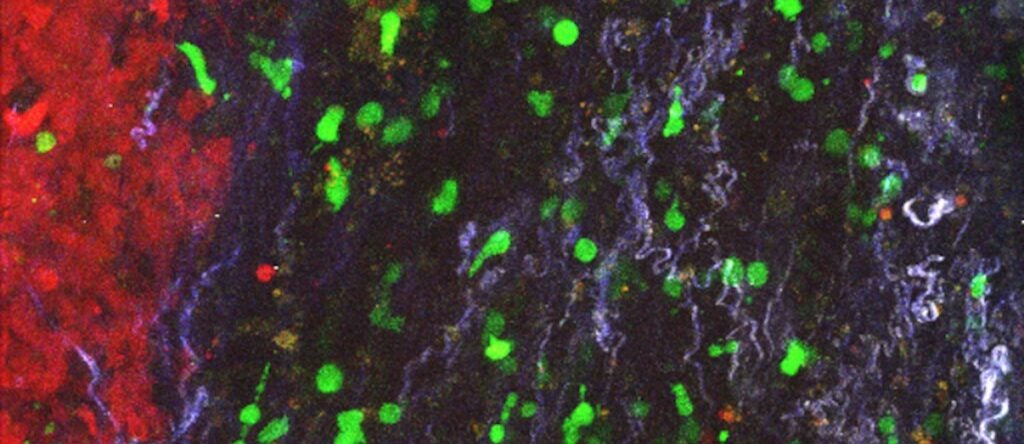
Removing the barrier surrounding solid tumors clears path for T cells (link is external)
Penn researchers uncover a new way to target solid tumors. Using CAR T cells to remove cancer-associated fibroblasts surrounding pancreatic tumors allows T cells to infiltrate and attack the tumor…

Genetic switch turns tumor suppressor into oncogene in colorectal cancer (link is external)
Researchers from the School of Veterinary Medicine have shown that an enzyme that suppresses early-stage colorectal cancer switches to become an oncogene as the cancer progresses.
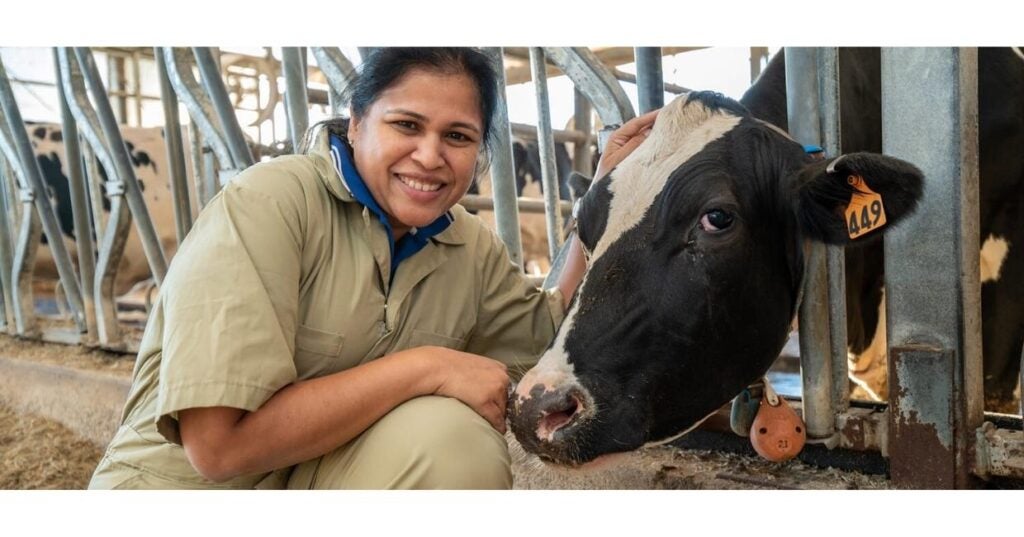
Could we breed cows that emit less methane? (link is external)
In a new study, researchers from the School of Veterinary Medicine identified attributes of low-methane-emitting dairy cows that could be used as targets for selective breeding.

Harnessing an innate protection against Ebola (link is external)
In their evolutionary battle for survival, viruses have developed strategies to spark and perpetuate infection. Once inside a host cell, the Ebola virus, for example, hijacks molecular pathways to replicate…
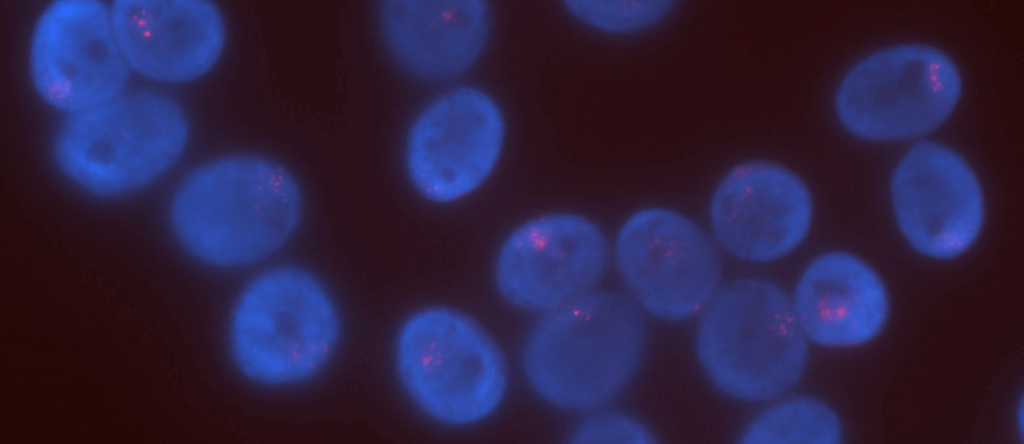
How sex differences may influence lung injury (link is external)
Comparing lung cells from male and female mice, Penn Vet scientists found gene expression differences that may explain why older males are at a higher risk than females for worse…
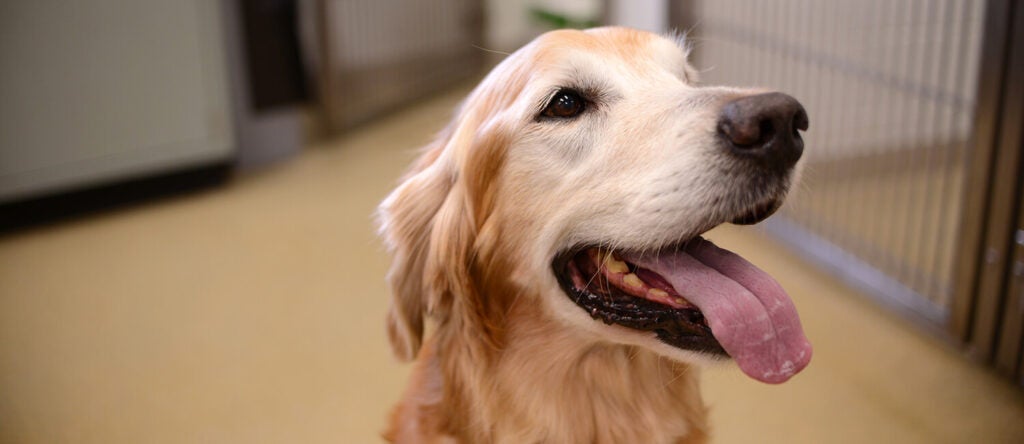
NIH-funded canine immunotherapy data center charts a path toward transformative therapies (link is external)
With support recently for five more years, Nicola Mason of the School of Veterinary Medicine and Qi Long of the Perelman School of Medicine hope their work leads to new…
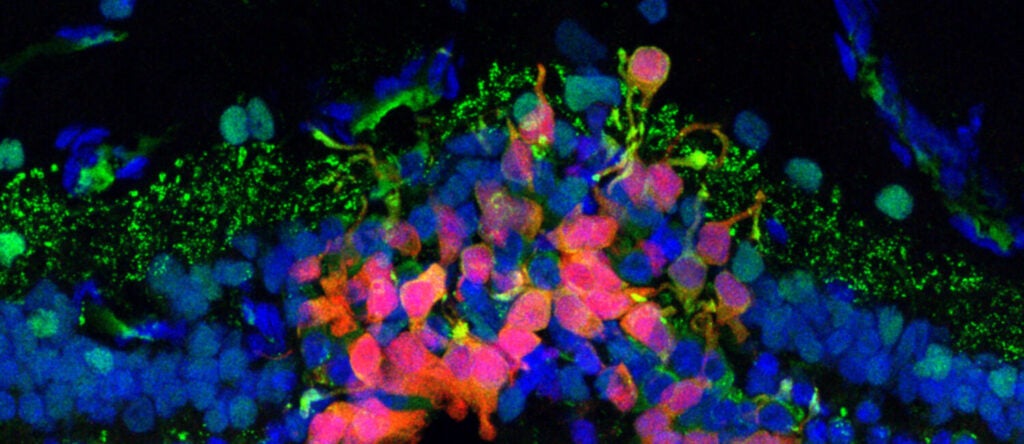
Progress toward a stem cell–based therapy for blindness (link is external)
A multi-institutional effort led by researchers at Penn Vet is taking steps to develop an effective technique to regenerate photoreceptors cells and restore sight in people with vision disorders.
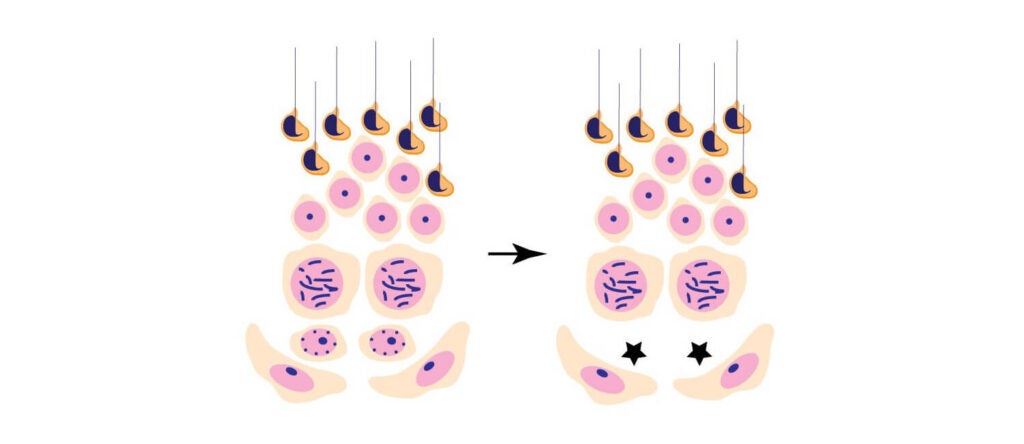
A newly identified stem cell regulator enables lifelong sperm production (link is external)
Research led by Dr. Jeremy Wang has discovered that the enzyme DOT1L, a stem cell renewal factor, is essential for mice to produce sperm throughout their adult lives.
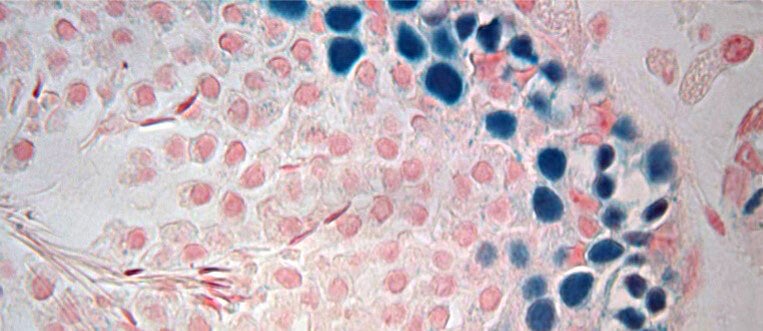
Frozen testicular tissue still viable after 20 years (link is external)
A new study in rats has shown that male testis tissue that is cryopreserved can be reimplanted after more than 20 years and will go on to make viable sperm.
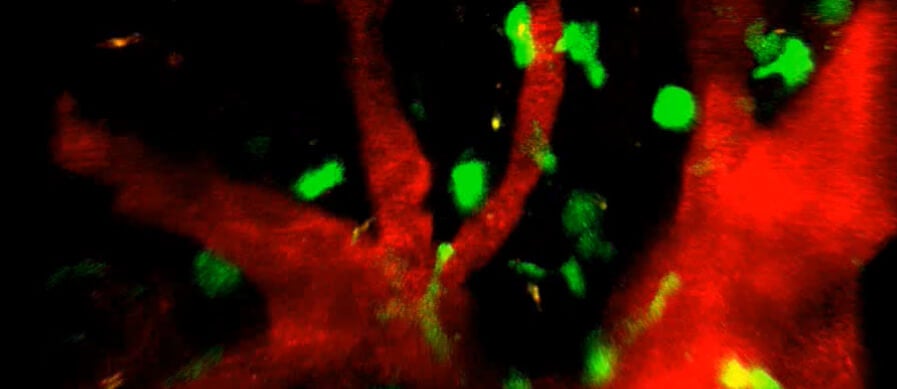
Regulating the regulators of the immune system (link is external)
Research led by Penn Vet scientists reveals a new layer of complexity with which the immune system finds a balance between controlling pathogens and protecting healthy tissue.
Sort By
- Research Laboratories (1)
- ASMG Laboratory - Microbial Genomics (2)
- Lengner Laboratory (2)
- New Bolton Center PADLS (1)
- Anguera Laboratory (4)
- Wang Laboratory (3)
- Puré Laboratory (1)
- Wolfe Laboratory (1)
- Dou Laboratory (2)
- Lennon Mucosal Immunology Laboratory (1)
- Brinster Laboratory of Reproductive Physiology (1)
- Equine Pharmacology Research Laboratory (1)
- Hunter Laboratory (4)
- Sunyer Laboratory (1)
- Harty Laboratory (3)
- Mason Immunotherapy Research Laboratory (2)
- Sylvia M. Van Sloun Laboratory (1)
- Scott Laboratory (1)
- Vaughan Laboratory (1)
- Research Institutes (9)
- Research Programs (1)
- Research Centers (2)
- Research Cores (2)
